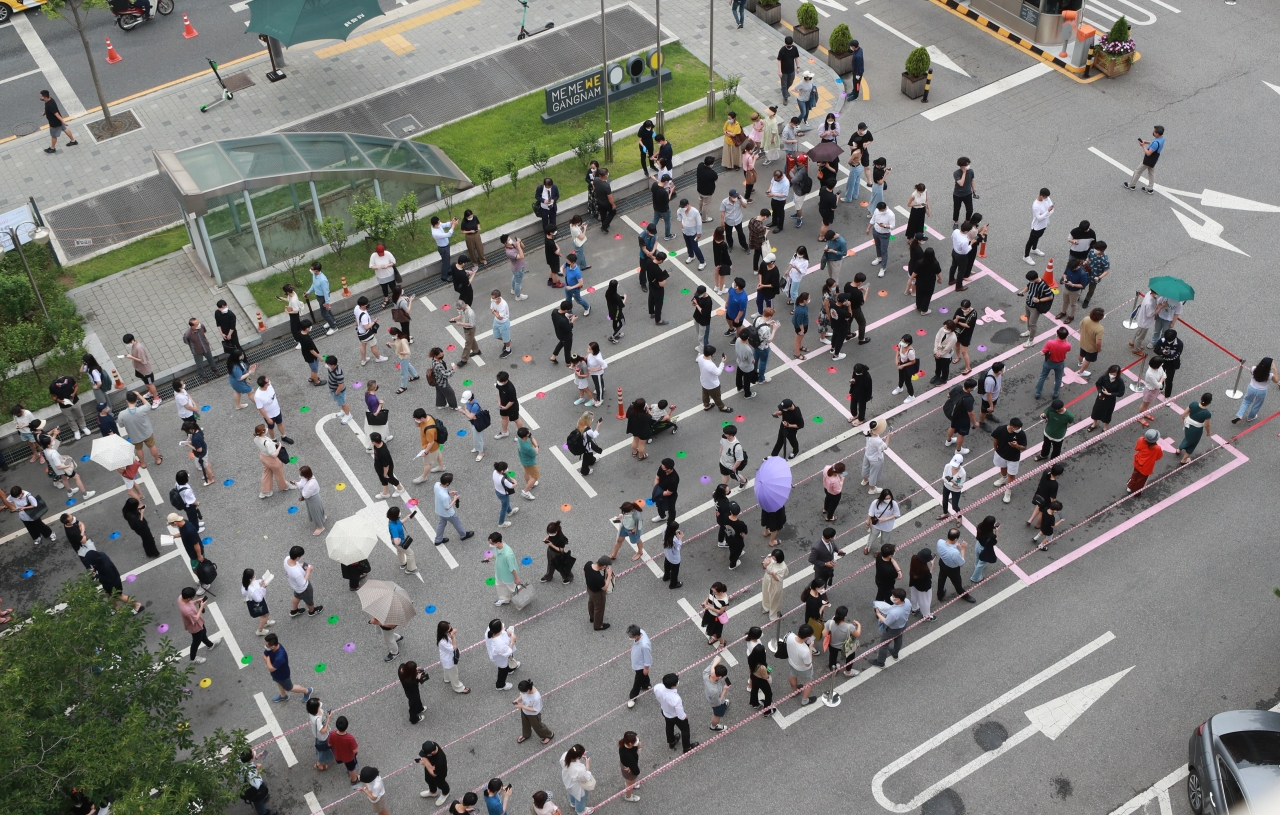South Korea once again delayed imposing stronger anti-COVID-19 measures, despite counting a record number of new COVID-19 cases Thursday.
Korea’s highest one-day increase of 1,275 cases was announced Thursday, according to the Korea Disease Control and Prevention Agency’s update, taking the country’s cumulative total to 164,028. The previous high of 1,241 cases was set at the height of the country’s deadliest surge in December.
While declaring Korea was “in the early phase of the fourth wave of COVID-19,” the government decided not to impose additional restrictions Wednesday, when 1,212 cases were reported.
Prime Minister Kim Boo-kyum said in a Thursday interview with a public radio station the government would wait until the end of the week before making the call on whether more restrictive measures are necessary. A day earlier, he told a COVID-19 response meeting of central and municipal offices that “the toughest degree of social distancing may need to be reinforced if the situation does not stabilize in the next two to three days.”
“This may be the gravest crisis we face in our fight against the pandemic,” he said. “But there are also other important considerations, like the hardships and challenges long-lasting social distancing will pose for the economy.”
But at least in Seoul, which has been the country’s COVID-19 epicenter since spring last year, case rates and other key metrics are already qualifying for the strictest rules under the new social distancing scheme, according to the national disease control agency chief, Jeong Eun-kyeong.
Jeong told a briefing held the same day that for a second day in a row, Seoul has posted over four cases per 100,000 residents, and that depending on Friday’s figures, the most advanced phase of social distancing may be required in the capital area.
“Under an auspicious scenario, case count could peak at 1,400 nationwide. But should things get worse, we could be seeing over 2,000 cases a day,” she said.
She said the rate at which delta was spreading here was also alarming. “Delta is on course to become the most prevalent strain here in Korea,” she said. “To defend against the variant, we need to boost vaccination rates, and while vaccinations of older populations proceed, anti-COVID-19 precautions remain critical.”
As of Wednesday midnight, 30 percent of Korea’s 51 million population received at least one dose of a vaccine, while just 10 percent were fully vaccinated.
So far the delta variant “has a minor impact on outbreaks here,” according to the Ministry of Health and Welfare’s spokesperson Son Young-rae. He said in a closed-door briefing that “no variant of concern has ever become dominant in Korea,” repeating his assessment from last week.
“Delta still accounts for about 10 percent of all identified variant cases. The share of the variants is increasing fast, yes, but they remain under control,” he said.
But according to Tuesday’s report, variants of concern showed up in more than half of samples tested a week earlier, with delta and alpha comprising 23 percent and 25 percent of the total, respectively.
Dr. Paik Soon-young, a virologist at Catholic University of Korea, said as the country was only sequencing 15 percent of all patient samples once a week, the figures underestimate the true number of variant cases present here.
“Until a couple of weeks ago, variants of concern made up roughly 30 percent of sequenced samples. Now that has gotten to more than 50 percent. Also, keep in mind that this data is already over a week old,” he said. “The amount being detected is highly likely to be undercounted.”
Infectious disease professor Dr. Kim Woo-joo of Korea University said cases were spreading at a much faster rate now compared to precious waves that swept the country, calling for swift action from the government.
Beds for patients with mild to moderate cases were running out in Seoul, with some being transported to facilities outside the city in the North and South Chungcheong and Gangwon provinces.
He said the rates of cases “under investigation” were on the rise, which means that contact tracing was failing to catch up with the speed at which the outbreak is growing.
Although although health officials say Korea is capable of carrying out up to 500,000 tests a day, over the past week the average was only around 68,000 tests each day. As demand for testing spikes, some districts in Seoul, including Gangnam, reported running out of test kits.
“We’re past the early stage of the fourth wave. Any interventions taken now would be already late. There is no time to withhold further action,” Kim said.
By Kim Arin (
arin@heraldcorp.com)





![[Exclusive] Hyundai Mobis eyes closer ties with BYD](http://res.heraldm.com/phpwas/restmb_idxmake.php?idx=644&simg=/content/image/2024/11/25/20241125050044_0.jpg)
![[Herald Review] 'Gangnam B-Side' combines social realism with masterful suspense, performance](http://res.heraldm.com/phpwas/restmb_idxmake.php?idx=644&simg=/content/image/2024/11/25/20241125050072_0.jpg)

